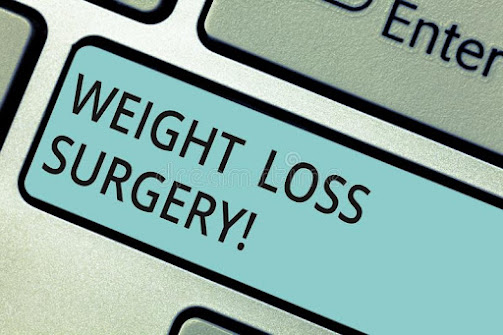Do obesity drugs work? Can supplements really control our weight? What is the real problem about using diet pills? Weight loss expert Anne Collins outlines the issues and provides some answers.
Within the pharmaceutical industry, obesity is now seen as the "trillion dollar disease". That's the estimated amount of profit a successful weight loss drug can expect to make. But are companies getting close to delivering a diet pill that really works - meaning, a pill that is both safe and effective at solving obesity? The answer, it seems, is No.
Pills To Reduce Obesity
It's true that the Food and Drug Administration (FDA) has approved a tiny number of weight loss pills like Xenical and Meridia for long term use in the treatment of obesity (BMI > 30). But evidence accumulated in clinical trials suggests that the effectiveness of these obesity drugs is less than impressive. Total annual weight reduction tends to be in the range 8-20 pounds. Furthermore, the highest weight loss tends to be achieved by patients who participate in supervised trials involving a combination of drug treatment, diet, exercise and counseling. Which makes it difficult to ascertain the precise effect of the medication itself. By comparison, less well supervised obesity drug trials tend to have a higher drop-out rate and reduced weight loss. And the longer the trial, the lower the compliance and the lower the weight loss. In short, while helpful to some patients, weight loss drugs are not yet the answer to obesity, especially when factors like cost are taken into account.
Should we be surprised? Not really. After all, even bariatric surgery is no guarantee of long term weight loss unless patients comply with the necessary post-operative dietary regimen. Indeed, some obesity experts claim that medical interventions like drugs and surgery are almost by definition doomed to failure, for the simple reason that they take control and responsibility away from patients. According to this view, it is only when patients accept full responsibility for their eating habits and lifestyle, that they have a real chance of achieving a normal weight in the long term.
Unfortunately, this view satisfies no one! It doesn't satisfy the pharmaceutical companies, who need to make money. It doesn't satisfy doctors, who need to give hope to their overweight patients, and it doesn't satisfy consumers who want instant weight loss without having to change their eating habits. In short, there is an overwhelming demand for an obesity pill, but a viable product has yet to emerge.
Pills For Cosmetic Weight Loss
Demand for diet pills is not limited to those suffering from clinical obesity. Millions of consumers with less than 40 pounds to lose take non-prescription pills to burn off body fat or increase their rate of weight loss. According to a study conducted by the University of Michigan, almost 25 percent of girl students turn to anorectic diet pills when they're trying to lose weight, including laxatives and diuretics.
These non-prescription pills are more difficult to evaluate, as they are not subject to the same high level of regulation as prescription-only drugs. Thus not all ingredients need to be tested, dosages and other labeling requirements are less stringent, and reporting of "adverse events" or health problems is not mandatory. Furthermore, few long term clinical trials are conducted on non-prescription pills, so hard evidence as to their safety and efficacy is scarce. Meantime, the huge profits to be made from these weight loss products means they can be supported by expensive advertising campaigns to increase consumer acceptance, making regulation and control even more of an uphill struggle. Indeed, the FDA has found it almost impossible to ban over-the-counter diet pills, even after reports of illness and injury.
Herbal Diet Pills For "Healthy Eating"
The past five years has seen a huge rise in sales of herbal diet pills, which are marketed as a form of "healthy eating". These herbal supplements typically include a variable combination of vitamins and other active ingredients which supposedly offer a healthier type of weight loss. Such claims are not generally supported by clinical evidence, and some suppliers are under investigation by both the FDA and FTC. Nevertheless, rising demand for these herbal weight loss pills is yet another confirmation of our huge appetite for what is essentially a non-dietary approach to weight control.
How Do Weight Loss Pills Work?
In simple terms, weight loss pills are designed either to alter body chemistry in order to reduce appetite, or to interfere with digestion in order to reduce calorie absorption. Appetite suppressants include amphetamine-like stimulants such as ephedra, or pills to increase serotonin or norepinephrine levels in the brain. Pills that interfere with the digestive system include fat-blockers (lipase inhibitors) like Xenical and chitosan, carb-blockers, and very high fiber bulking agents such as glucomannan.
Are Weight Loss Pills Safe?
Obesity drugs are generally safe when used correctly and under medical supervision. The trouble starts when users do not follow the manufacturer's instructions. Adverse health events for these pharmaceuticals include heart or blood pressure problems and strokes, as well a range of less serious complaints. The same applies to non-prescription diet pills, whose adverse health effects include high blood pressure, heart palpitations, irregular heartbeats, dizziness, blurred vision, headaches, insomnia, intestinal blockages, anxiety and depression. In extreme cases, both prescription-only and non-prescription pills can cause life-threatening conditions. Even so, safety remains a relative concept. Cigarettes, alcohol, cars and stress kill millions of people every year. By comparison with these things, diet pills cause far fewer "casualties", and if you consult your doctor before taking them, you can reduce the health risk to a minimum.
The Real Problem With Weight Loss Pills
The biggest problem about relying on drugs and supplements to lose weight is not health, it's reliability. In my 20-odd years of dealing with overweight individuals and their families, I have yet to hear of anyone who achieved and maintained any significant weight loss by using pills. But I have met a huge number of people whose weight and emotional state of mind had been significantly worsened through the use of pills. They were afraid of food, they had absolutely no confidence in their ability to make sensible food choices, and tended to rely on purging, laxatives and similar products to control their eating habits. One client - a former annual weight loss winner with one of the major dieting companies - had been fed deliberately with pills in order to achieve the weight reduction that the organization required. When she came to me for help, she had regained 70 pounds of her original weight loss. In short, relying on pills for weight control can mess up your body and your mind.
The Small Print Says It All
Advertisements and infomercials for diet pills are dominated by headlines like: "Effortless Weight Loss" or "Lose Weight While You Sleep!" and so on. But the small print often tells a different story - either that users should follow a calorie-controlled diet, or only eat at certain times of the day, or stop eating certain high-calorie foods, or some combination of all three. There may also be a reference to the need for exercise. In other words, if you want the truth about a weight loss pill, check the small print. Because, as all obesity experts and dietitians will tell you, no long term reduction in weight is possible without controlling energy intake and expenditure.
If You Must Take Pills
Whether you are a diet pill addict, or just an occasional user, here are two ways to make weight loss easier. Look for a healthy, gimmick-free diet, and follow it as carefully as you can. In the process, focus on healthy eating rather than calorie reduction. Aiming to eat healthily is much more positive than calorie control. Secondly, join an online dieting forum and get encouragement and advice from other people. Because all surveys show that losing weight is a lot easier when you have others to lean on. My own forum for instance includes a large number of former diet pill users who are now enjoying their food and losing significant amounts of weight in the process. Which proves that when it comes to weight control, people power is much more effective than popping pills.









